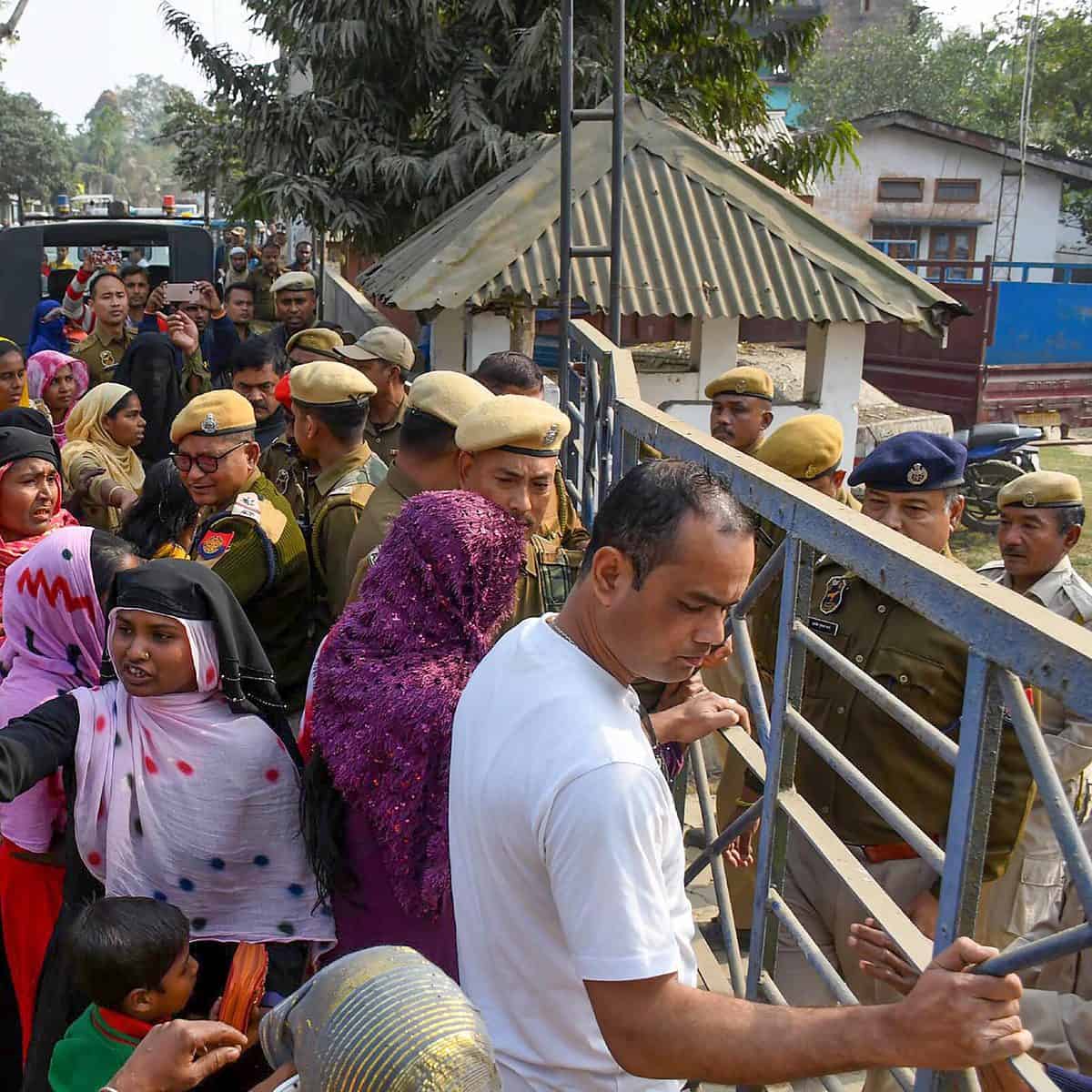
Guwahati: The recent arrests of over 3,000 people allegedly involved in child marriages in Assam have created a divide in the civil society, with a section asserting that mere law enforcement cannot be the solution while some arguing that at least the law is being discussed and may prove to be a deterrent.
More than 3,000 people allegedly associated with child marriages have been apprehended so far across Assam, and lodged in temporary jails, sparking protests by women who decried the arrest of sole breadwinners of their families.
Human rights lawyer Debasmita Ghosh said that once a marriage is consummated, the law considers it to be valid and children born out of such unions enjoy all legal rights.
“The law states that a child marriage is voidable only if a petition is filed before a district court by the person who was a child at the time of the marriage and if the petitioner is a minor, it can be filed through his or her guardian,” she told PTI.
If the petition is being filed by the person who was married as a child, it must be done so within two years of the person attaining adulthood, Ghosh said.
“In most of the arrests made, the couples may be adults now and if they have not filed petitions for annulling their marriages, the state has no business to interfere in their personal lives,” Ghosh added.
Besides, the law was enacted in 2006 and the name itself suggests marriages should be prohibited’ but why was it not done so by agencies responsible for it? she questioned.
Eminent academician Manorama Sarma said child marriages must end but this is a social evil, not a law and order problem.
“Taking care of women’s education, health facilities and access to livelihood is the way to end it and not by implementing a law retrospectively. It should be strictly implemented prospectively,” the retired professor said.
Women rights activist Anurita Pathak Hazarika said a sociological analysis of child marriages must be looked into from the “gender lens and how inequality has an impact on these practices”.
Awareness of such issues, including sexual reproductive health rights, must be institutionalised by including it in the school curricula, she added.
Child rights activist Miguel Das Queah said, “The state government definitely wanted to send out a strong message that child marriages must stop but it should have taken into consideration the protests that would take place following such action.”
“Police face stiff resistance when they try to prevent child marriage. In this case, so many people have been arrested, there were bound to be protests. The campaign should have been better planned,” Queah, the founder of Universal Team for Social Action and Help (UTSAH) said.
A long-term sustained campaign is required to completely eradicate the menace of child marriage, he said.
The activist said that there are certain limitations in the Prohibition of Child Marriage Act (PCMA), 2006, under which a court can sentence an offender to two years imprisonment and slap a fine of Rs 1 lakh.
“According to the law, if both the girl and the boy were minors during their marriage but are now adults, they won’t be penalised but action will be taken against the adults who arranged the wedlock.
“The couple, even after becoming adults, will be considered as children in conflict with the law and will be prosecuted under the Juvenile Justice Act,” Queah pointed out.
Moreover, the Protection of Children from Sexual Offences Act (POCSO), under which those marrying children below the age of 14 would be booked as per the state cabinet’s decision, criminalises all sexual acts between adults and children below the age of 18.
“According to POCSO Act, any sexual act between an adult and a minor is rape. The criminal angle will be considered only in cases of trafficking and use of deceit in marriages,” Queah added.
Assam State Commission for Protection of Child Rights (ASCPCR) chairperson Sunita Changkakoti claimed that after the “strong message sent out by the state government, people are now discussing the law about which many were unaware that resulted in child marriages”.
“People are now aware that a law exists under which child marriage is punishable,” she said.
The police may not have responded to the issue earlier but they alone cannot be blamed as even the health department did not report teenage pregnancies while teachers did not report whether girls dropping out of schools had got married, she added.
“All stakeholders, including school management committees, ASHA, Anganwadi workers and panchayat representatives, have responsibilities in preventing child marriages.
“We have initiated awareness campaigns in districts where there is a high incidence of child marriage and asked authorities to register a few cases to send a message,” Changkakoti added.

